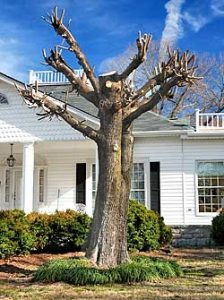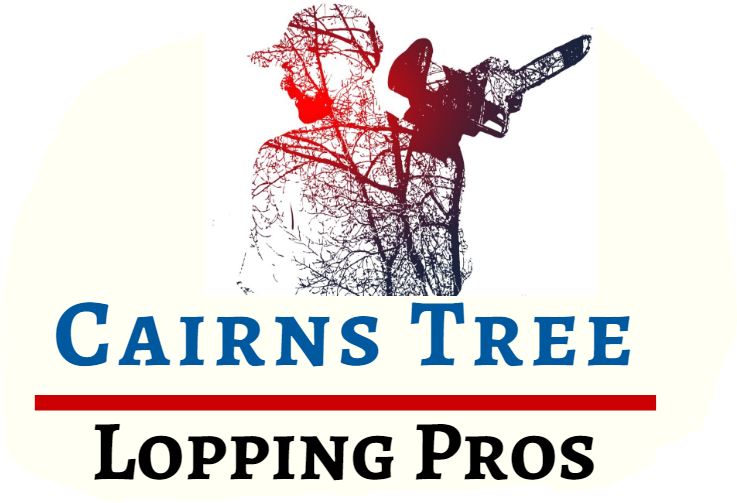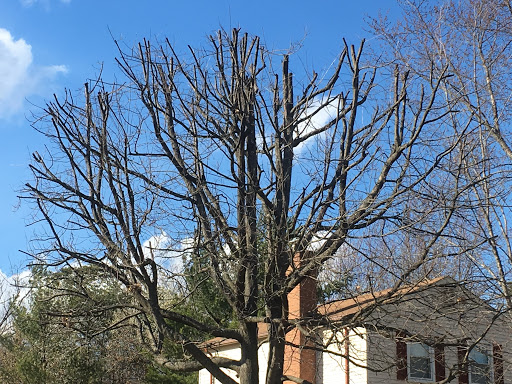Written by Gardening Know How and published on https://www.gardeningknowhow.com/.
Topping is the indiscriminate cutting of tree branches to stubs or to lateral branches that are not large enough to assume the terminal role. Other names for topping include “heading,” “tipping,” “hat-racking,” and “rounding over.” Topping is often used to reduce the size of a tree. A homeowner may feel that a tree has become too large for his or her property, or that tall trees may pose an unacceptable risk. Topping, however, is not a viable method of height reduction and certainly does not reduce future risk. In fact, topping will increase risk in the long term.
Table of Contents
Tree Topping Information – Does Tree Topping Hurt Trees
 Many people think that you can shorten a tree by cutting off the top. What they don’t realize is that topping permanently disfigures and damages the tree, and may even kill it. Once a tree is topped, it can be improved with the help of an arborist, but it can never be completely restored. Read on for tree topping information that can help you make better decisions about shortening trees. What is Tree Topping? Topping a tree is the removal of the top of the central stem of a tree, called the leader, as well as the upper main branches. They are usually sheared off at a uniform height. The result is an unsightly tree with thin, upright branches called water sprouts at the top. Topping a tree seriously affects its health and value in the landscape. Once a tree is topped, it is highly susceptible to disease, decay and insects. In addition, it reduces property values by 10 to 20 percent. Topped trees create a hazard in the landscape because the branch stubs decay and break. The water sprouts that grow at the top of the tree have weak, shallow anchors and are likely to break off in a storm.
Many people think that you can shorten a tree by cutting off the top. What they don’t realize is that topping permanently disfigures and damages the tree, and may even kill it. Once a tree is topped, it can be improved with the help of an arborist, but it can never be completely restored. Read on for tree topping information that can help you make better decisions about shortening trees. What is Tree Topping? Topping a tree is the removal of the top of the central stem of a tree, called the leader, as well as the upper main branches. They are usually sheared off at a uniform height. The result is an unsightly tree with thin, upright branches called water sprouts at the top. Topping a tree seriously affects its health and value in the landscape. Once a tree is topped, it is highly susceptible to disease, decay and insects. In addition, it reduces property values by 10 to 20 percent. Topped trees create a hazard in the landscape because the branch stubs decay and break. The water sprouts that grow at the top of the tree have weak, shallow anchors and are likely to break off in a storm.
Does Topping Hurt Trees?
Topping damages trees by:
- Removing much of the leaf surface area needed to produce food and the food storage reserves.
- Leaving large wounds that are slow to heal and become entry points for insects and disease organisms.
- Allowing strong sunlight to enter the central parts of the tree, resulting in sunscald, cracks and peeling bark.
Hat rack pruning is cutting off lateral branches at arbitrary lengths and damages trees in ways similar to topping. Utility companies often hat rack trees to keep them from interfering with overhead lines. Hat racking destroys the appearance of the tree and leaves stubs that will eventually decay.
How Not to Top Trees
Before you plant a tree, find out how large it will grow. Don’t plant trees that will grow too tall for their environment. Drop crotching is cutting back branches to another branch that can take over their function. Suitable branches are at least one-third to three-fourths the diameter of the branch you are cutting. If you find it necessary to shorten a tree but aren’t sure how to do it safely, call a certified arborist for help.
Original post here https://www.gardeningknowhow.com/ornamental/trees/tgen/tree-topping-information.htm.

